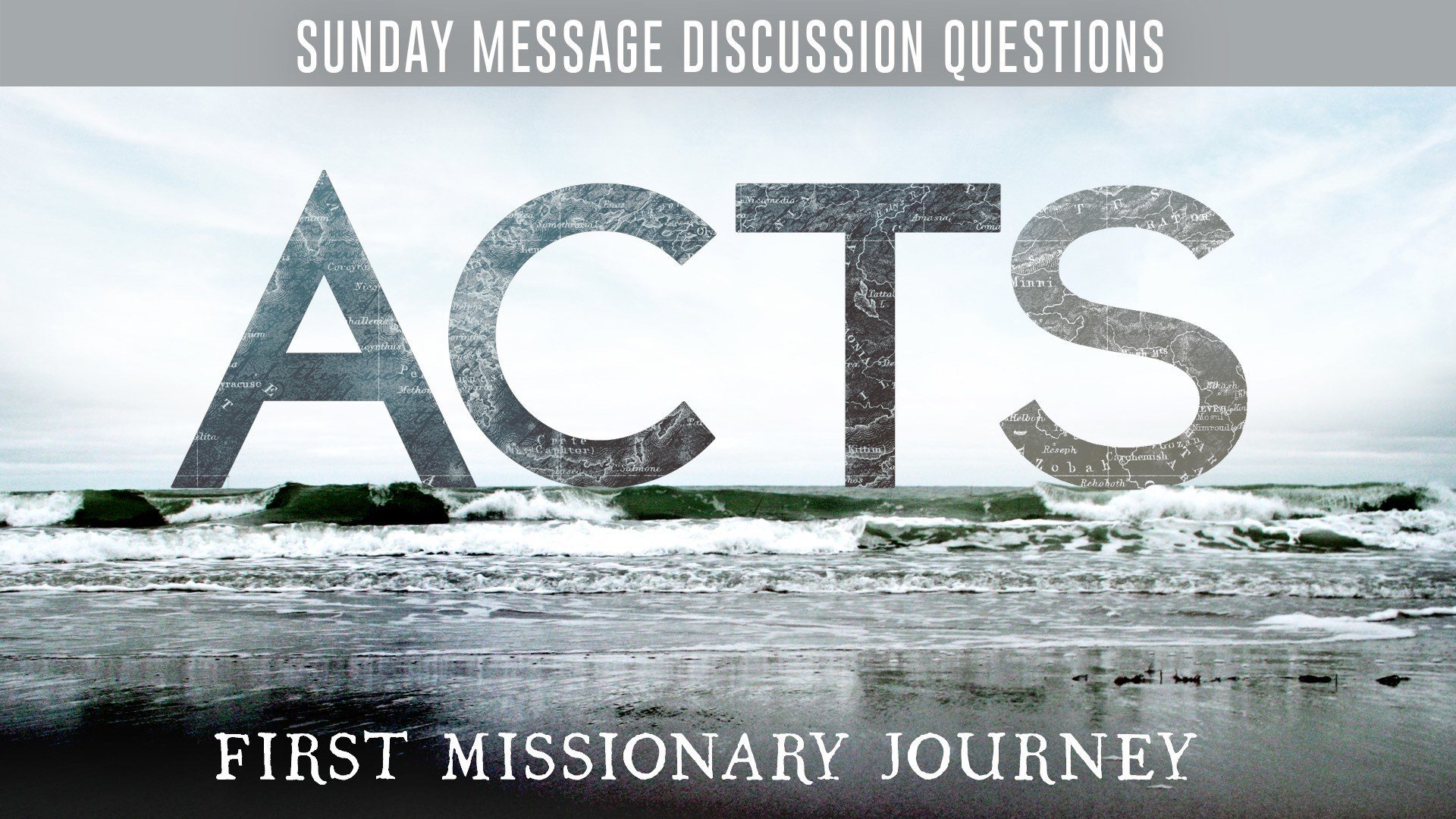1) In Acts 13:2 and 13:7, we read that it was “Barnabas and Saul” who engaged in the Gospel work. In Acts 13:13, we read that “Paul and his companions” sailed to Galatia. Barnabas isn’t mentioned, and Paul’s ministry remains the focus for the rest of the book. Observing this shift in the text, Todd made the point that in all likelihood, Barnabas doesn’t give a rip who gets credit for the Gospel work, but simply cares that the Gospel goes forth. Is this true for you? In other words, do you rejoice only when the Lord is doing things through you, or do you rejoice also when His work is done through others?
2) In Acts 13:15, we read that the the synagogue rulers asked Paul and Barnabas for a “message of encouragement” for the people. Paul proceeds to give a summary of the Scriptures and share the good news of Jesus Christ with the congregation. If someone were to ask you for a message of encouragement, what would you say? Would you be ready? If not, why not?
3) Read 1 Peter 4:12. In Acts 13, we see that demonic resistance, discouragement, and desertion are realities that face “Paul and his companions” as they engage in Gospel ministry. What do these three “D-fences” to the Gospel suggest about the nature Gospel work? Is opposition always an indication that the work should be abandoned? Have you ever encountered such opposition?
4) Read Romans 15:20 and 2 Corinthians 11:27–28. Paul desired to preach the Gospel to those who didn’t know about Jesus. He also had a daily concern for the church. In what ways is this similar to motherhood? How is the church our mother? (Hint: Consider Todd’s response to those who ask him what his wife does: “My wife gives birth to and shape to eternal humanity made in the image of God”..how about yours?)
5) Read Acts 13:43–45. What three responses do you notice from the Jews who heard Paul’s presentation of the Gospel? What kind of responses have you received from others when you have shared the Gospel with them? Is it your responsibility for how others respond?
